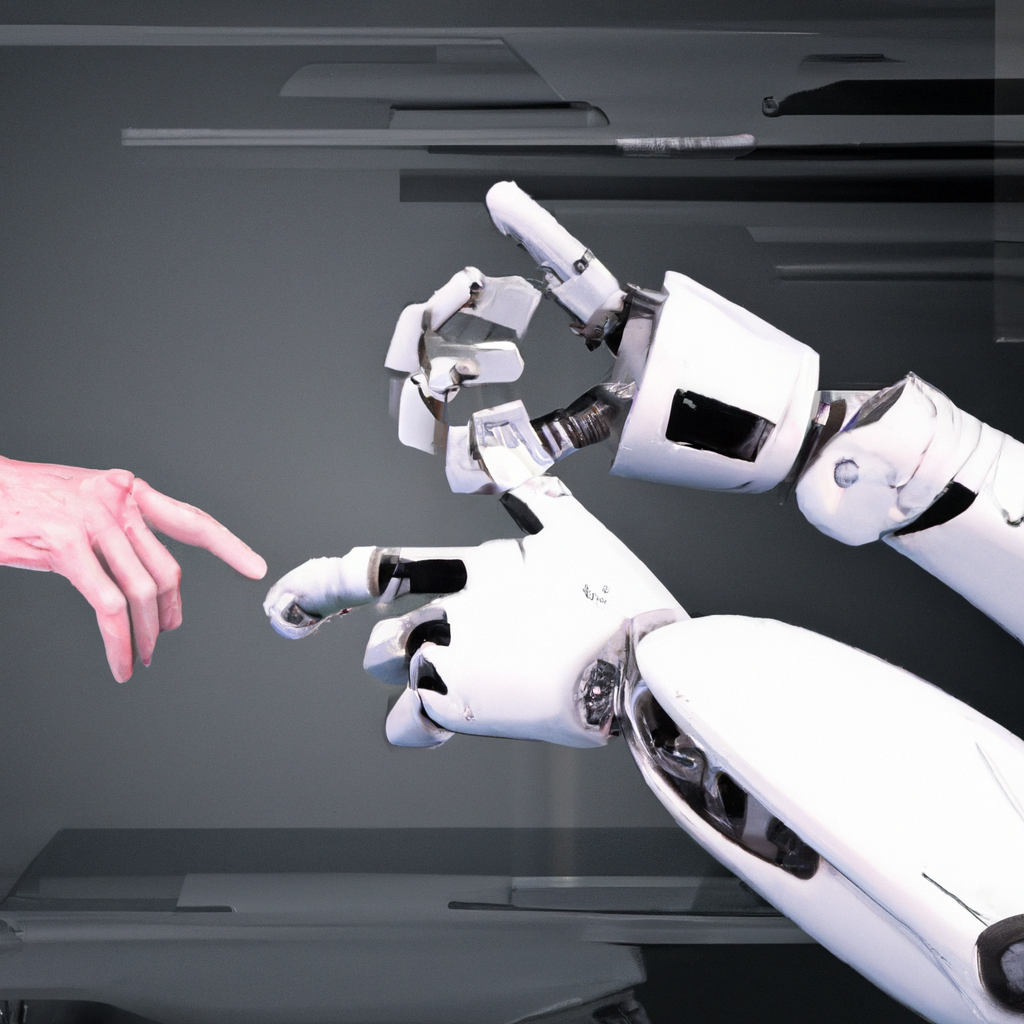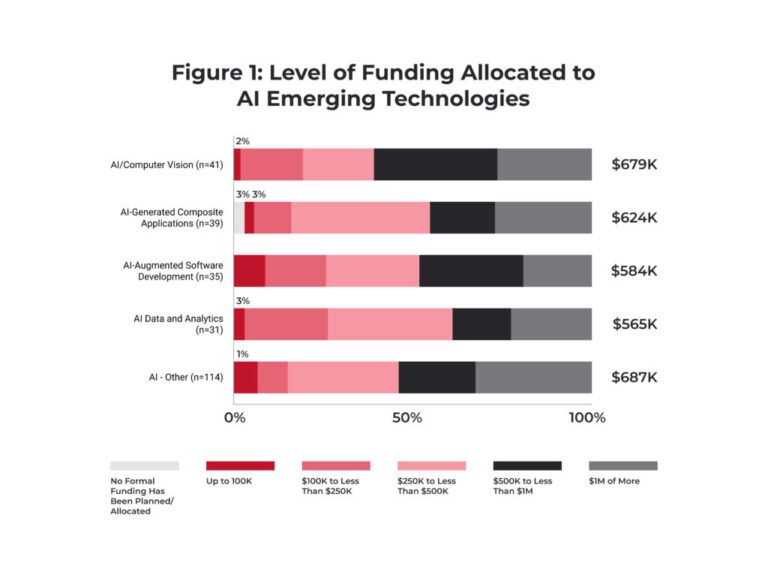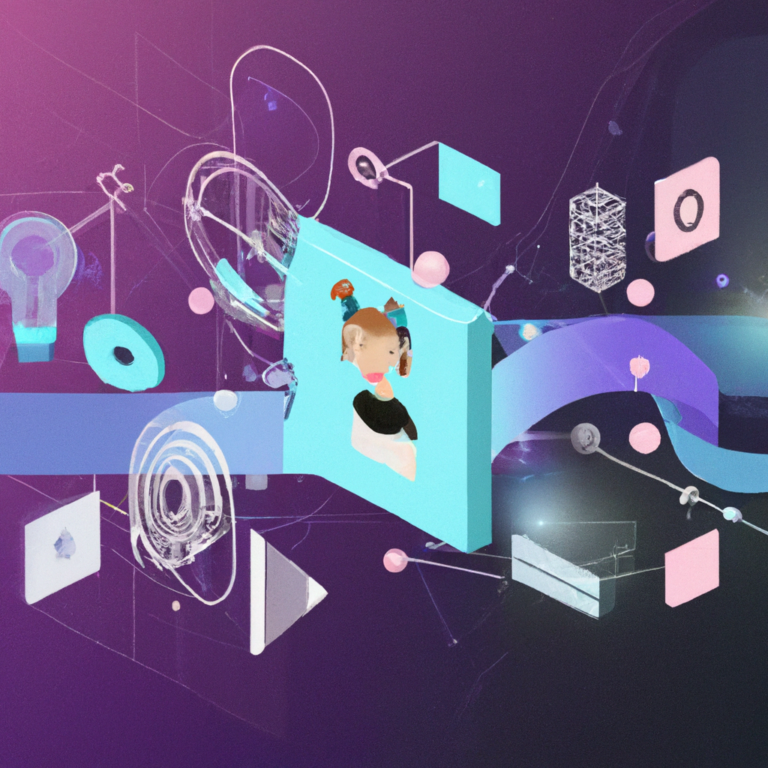The Future Of Work In The Age Of AI: How Will AI Change The Way We Work In The Future?

In the fast-paced, ever-evolving world we live in, the future of work is a constant topic of discussion and speculation. With the rise of artificial intelligence (AI), the way we work is poised to undergo a profound transformation. From enhancing productivity and innovation to redefining job roles and responsibilities, AI has the potential to revolutionize the way we approach work in the future. In this article, we will explore the exciting possibilities and implications of AI in the workplace, and how it may shape our professional lives in the years to come. Get ready to embark on a journey into the future of work in the age of AI!

Automation in the Workplace
Automation in the workplace is becoming increasingly prevalent due to the rising use of Artificial Intelligence (AI) in job tasks. AI has the potential to revolutionize industries and transform the way we work. It offers numerous benefits, such as increased productivity, improved efficiency, and enhanced decision-making capabilities. However, it also raises concerns about job displacement and the need for new skills. In this article, we will explore the impact of AI on employment, the demand for new skills, and the transformation of the job market.
Increasing Use of AI in Job Tasks
AI is being integrated into various job tasks, from routine activities to complex decision-making processes. Tasks that are repetitive and time-consuming, such as data entry, analysis, and customer support, can now be automated with the help of AI technologies. Intelligent algorithms and machine learning algorithms can process large amounts of data, identify patterns, and make accurate predictions, thereby reducing the reliance on human labor for these tasks.
Impact on Employment and Job Displacement
The increasing use of AI in job tasks raises concerns about the potential displacement of human workers. As AI technology advances, certain jobs may become obsolete or require fewer human workers. This can lead to job losses and unemployment in some sectors. However, it is important to note that while AI may replace certain tasks, it also creates new job opportunities. The key to successfully navigating the impact of AI on employment is to embrace the changes, adapt, and acquire new skills that are in demand in the evolving job market.
Demand for New Skills
The integration of AI in the workplace has created a demand for new skills. Jobs that require creativity, critical thinking, and problem-solving abilities are becoming increasingly valued. Additionally, skills such as data analysis, programming, and AI knowledge are in high demand. As technology continues to advance, individuals need to invest in developing their skills to remain relevant in the job market.
Redefining Job Roles and Responsibilities
The use of AI in the workplace is reshaping job roles and responsibilities. With the automation of repetitive tasks, employees are freed up to focus on more meaningful and complex work. This enables them to utilize their unique skills and abilities to drive innovation and add value to their organizations. Job roles are evolving to require a combination of technical and soft skills, as individuals are expected to work collaboratively with AI systems.
Job Market Transformation
The integration of AI is transforming the job market as a whole. While certain jobs may face potential displacement, new job opportunities are also emerging. For example, the demand for AI specialists, data scientists, and AI trainers has increased significantly. As AI technology becomes more prevalent, individuals need to be adaptable and willing to acquire new skills to navigate the changing job landscape successfully.
Augmented Intelligence and Decision-Making
One essential aspect of AI in the workplace is the collaboration between humans and AI systems, known as augmented intelligence. Instead of replacing humans, AI acts as a supportive tool, enhancing decision-making and improving efficiency and accuracy. By leveraging AI systems, individuals can analyze vast amounts of data, identify trends, and make more informed decisions. This collaborative approach allows humans to focus on tasks that require intuition, empathy, and creativity.
Collaboration between Humans and AI
In the age of AI, collaboration between humans and AI systems is key to capitalizing on the benefits of technology. Through effective collaboration, individuals can leverage the strengths of AI systems while bringing their unique qualities to the table. This collaboration allows for more comprehensive problem-solving and decision-making processes, ultimately leading to better outcomes and improved productivity.
AI as a Supportive Tool for Decision-Making
AI can support decision-making processes by providing valuable insights and analysis. By processing large amounts of data and identifying patterns, AI can assist in making accurate predictions and recommendations. However, it is important to remember that AI systems are only as good as the data they are trained on. Human oversight and critical thinking are crucial in evaluating the recommendations made by AI systems and making final decisions.
Improving Efficiency and Accuracy
The integration of AI in decision-making processes can significantly improve efficiency and accuracy. AI systems can process vast quantities of data in a short amount of time, eliminating the need for manual data analysis. This allows employees to focus on higher-value tasks and speeds up the decision-making process, leading to increased productivity and more accurate outcomes.
Workplace Productivity and Efficiency
Automation brings several benefits to workplace productivity and efficiency. By streamlining business processes and automating repetitive tasks, employees can devote more time to strategic and creative work. This not only increases individual productivity but also enhances overall organizational efficiency. With AI technology handling routine tasks, employees can focus on more critical responsibilities, promoting innovation and growth.
Streamlining Business Processes
AI technology can streamline business processes by automating tasks that were previously time-consuming and prone to error. For example, instead of manually sorting and analyzing data, AI algorithms can quickly process and extract valuable insights. This allows employees to make data-driven decisions and allocate resources more effectively, ultimately improving the efficiency of the entire organization.
Automating Repetitive Tasks
Repetitive tasks are often viewed as tedious and can lead to decreased morale and productivity. With AI, these tasks can be automated, freeing up employees’ time and energy for more meaningful work. This not only improves employee satisfaction but also reduces the likelihood of errors and increases the speed at which tasks are completed.
Enhancing Employee Performance
AI technology can enhance employee performance by providing real-time feedback, personalized recommendations, and assistance. For example, AI-powered virtual assistants can help employees find relevant information, answer questions, and guide them through complex tasks. This support improves employee confidence, reduces decision-making time, and ensures consistent and high-quality performance.
Evolving Work Environments
The integration of AI is leading to evolving work environments, characterized by flexibility and remote work arrangements. These changes are driven by advancements in technology that enable seamless communication, collaboration, and information sharing. By embracing these new work arrangements, organizations can adapt to the changing needs and preferences of their employees, leading to increased job satisfaction and improved work-life balance.
Flexible and Remote Work
AI enables employees to work flexibly and remotely, breaking the traditional boundaries of a physical office space. With the help of AI-powered collaboration tools and communication platforms, teams can work together seamlessly, regardless of their geographical locations. This flexibility allows employees to balance their personal and professional lives more effectively, leading to increased productivity and satisfaction.
Changing Office Culture
The presence of AI in the workplace also contributes to changing office culture. Collaboration between humans and AI systems fosters a sense of innovation, creativity, and adaptability. Traditional hierarchical structures may give way to more collaborative and dynamic environments, where individuals are encouraged to experiment, take risks, and embrace change. This shift in office culture promotes diversity of thought and enables organizations to stay competitive in a rapidly evolving world.

Adapting to New Work Arrangements
As work arrangements evolve, organizations need to adapt their policies, processes, and infrastructure to support remote and flexible work. This includes investing in robust communication systems, cybersecurity measures, and employee training. By embracing and supporting these new work arrangements, organizations can attract top talent, improve employee retention, and foster a culture of innovation.
Ethical Considerations and Regulation
The integration of AI in the workplace brings ethical considerations and the need for proper regulation. The potential biases in AI algorithms, the impact on privacy and security, and the responsibility of developers and organizations need to be addressed. Ethical AI development and the establishment of standards and guidelines are crucial to ensure that AI technology is used responsibly and in a way that benefits society as a whole.
AI’s Impact on Ethics and Fairness
AI algorithms are susceptible to biases, as they learn from existing data, which may contain inherent biases. This raises concerns about fairness and discrimination. It is crucial to address these biases and ensure that AI systems are developed in a way that upholds ethical standards and promotes equal opportunities for all individuals. Transparency and diversity in AI development teams can help mitigate these ethical concerns.
Ensuring Privacy and Security
The integration of AI in the workplace requires the collection and analysis of vast amounts of data. Organizations must prioritize privacy and security to protect sensitive information and maintain the trust of employees and customers. Secure data storage and transmission, as well as strict access controls, are essential to prevent data breaches and unauthorized access to personal information.
Developing Ethical AI Standards and Regulations
To prevent misuse and ensure responsible AI development and deployment, ethical AI standards and regulations need to be established. These standards should address concerns such as transparency, accountability, and the ethical use of AI in decision-making processes. Collaboration between industry experts, policymakers, and technology organizations is vital in creating a framework that promotes the ethical and responsible use of AI technology.
Human-Machine Collaboration
The advent of AI technology has led to a transformative shift in work dynamics, emphasizing the need for human-machine collaboration. Instead of replacing humans, AI systems complement their skills and abilities. Organizations need to invest in training and upskilling employees to facilitate effective collaboration with AI systems. By leveraging the strengths of both humans and AI, organizations can unlock new opportunities and drive innovation.
Shifting Work Dynamics
Work dynamics are shifting as AI becomes more integrated into various job tasks. Instead of viewing AI as a threat, organizations and employees should embrace the opportunity to work alongside AI systems. This requires a shift in mindset, with individuals recognizing the value that AI can bring and actively seeking ways to collaborate effectively. Managers play a crucial role in fostering a culture of collaboration and facilitating the integration of AI in work dynamics.
Training and Upskilling Employees
To enable effective human-machine collaboration, organizations must provide training and upskilling opportunities for employees. This includes equipping employees with the necessary technical skills to work with AI systems and fostering a culture of continuous learning. By investing in the development of employees’ skills, organizations can ensure they are prepared to navigate the changing workplace dynamics and contribute to the successful integration of AI technology.
Creating New Job Opportunities
Contrary to popular belief, the integration of AI can create new job opportunities. As AI technology advances, there will be a need for individuals who can develop, manage, and operate AI systems. Additionally, jobs that require uniquely human qualities such as empathy, creativity, and critical thinking will remain in demand. Organizations that embrace AI technology and invest in their employees’ skills can create a workforce that is well-equipped for the jobs of the future.
The Role of AI in Customer Service
AI technology is revolutionizing customer service by improving the overall customer experience. Automated chatbots and virtual assistants can handle customer inquiries, provide personalized recommendations, and resolve issues efficiently. These AI-powered systems are available 24/7, ensuring that customers receive prompt assistance and have their needs met. By leveraging AI in customer service, organizations can enhance customer satisfaction and build stronger relationships with their clients.
Improving Customer Experience
AI technology plays a crucial role in improving the customer experience. Automated chatbots and virtual assistants provide real-time assistance, reducing response times and ensuring consistent support. By analyzing customer data and patterns, AI systems can personalize recommendations and offers, making the customer feel valued and understood. Furthermore, AI can assist in predicting customer needs and preferences, leading to proactive engagement and excellent service.
Automated Chatbots and Virtual Assistants
Automated chatbots and virtual assistants are increasingly being used in customer service to handle routine inquiries and tasks. These AI-powered systems can answer frequently asked questions, provide product information, and guide customers through simple processes. By automating these tasks, organizations can free up human customer service representatives to handle more complex issues, ensuring that each customer interaction receives the attention it deserves.
Personalized Recommendations
AI technology allows organizations to provide personalized recommendations to customers, enhancing their shopping experience. By analyzing customer behavior, preferences, and purchase history, AI systems can suggest relevant products or services. This personalization creates a more tailored and engaging experience, increasing the chances of conversions and customer loyalty. AI-powered recommendation engines have become an essential tool for organizations to drive sales and meet customer expectations.
Addressing Bias and Diversity
The integration of AI in the workplace brings attention to the potential biases in AI systems and the need to promote diversity and inclusion. Bias in AI algorithms can lead to discriminatory outcomes and harm marginalized groups. To ensure fairness and equal opportunities, organizations must actively work to reduce bias in AI systems and promote diversity in AI development teams.
Reducing Bias in AI Systems
Reducing bias in AI systems is crucial to ensure fairness and prevent discrimination. Organizations must evaluate the data used to train AI algorithms and identify potential biases. By diversifying the training data and involving individuals from diverse backgrounds in the development process, organizations can reduce the risk of biased outcomes. Regular audits and continuous monitoring of AI systems can help address and rectify any biases that may arise.
Promoting Diversity and Inclusion
Promoting diversity and inclusion in AI development teams is essential to prevent biases and ensure fair outcomes. By including individuals from different backgrounds, perspectives, and experiences, organizations can create AI systems that reflect the diversity of the population they serve. This inclusivity not only helps address biases but also leads to more innovative and comprehensive solutions that cater to the needs of a wider range of users.
Ethical AI Development
Ethical AI development is crucial to address bias, promote fairness, and ensure responsible use of AI technology. Organizations must prioritize ethical considerations throughout the development and deployment of AI systems. This includes transparent decision-making processes, accountability for the outcomes of AI systems, and adherence to ethical guidelines and standards. By placing ethics at the forefront of AI development, organizations can build trust with their stakeholders and contribute to the responsible advancement of AI technology.
Preparing for the Future of Work
To effectively prepare for the future of work in the age of AI, organizations and individuals must invest in AI education and training, adapt education systems, and promote lifelong learning. With the rapid pace of technological advancements, continuous learning and upskilling are crucial to stay relevant and thrive in the changing job market.
Investing in AI Education and Training
Organizations and educational institutions need to invest in AI education and training programs to equip individuals with the skills needed to work alongside AI systems. This includes providing opportunities for employees to learn AI technologies, data analytics, and programming, as well as understanding ethical considerations and the potential impact of AI on their work. By investing in AI education and training, organizations can empower their employees to effectively utilize AI and drive innovation.
Adapting Education Systems
Education systems need to adapt to the changing needs of the job market in the age of AI. This includes incorporating AI education and training into curricula, developing interdisciplinary programs, and promoting critical thinking and problem-solving skills. By integrating AI education at all levels, from primary to tertiary education, individuals can develop the necessary skills to succeed in an AI-driven world.
Promoting Lifelong Learning
Lifelong learning is essential to adapt to the changing demands of the future job market. As AI technology continues to evolve, individuals need to continuously upskill and stay updated on the latest developments. Organizations should support and encourage employees to engage in lifelong learning by providing resources, mentorship programs, and professional development opportunities. By promoting a culture of lifelong learning, individuals can navigate the changing job landscape with confidence and adaptability.
In conclusion, AI is transforming the way we work in the future. While it raises concerns about job displacement, it also presents opportunities for improving productivity, efficiency, and decision-making. As AI becomes more integrated into the workplace, organizations and individuals must adapt by acquiring new skills, embracing collaboration with AI systems, and addressing ethical considerations. By taking proactive measures, investing in education and training, and promoting lifelong learning, we can prepare for a future where humans and machines work together effectively and create new opportunities for growth and innovation.
Want to write articles like us? Get your copy of AI WiseMind here!






